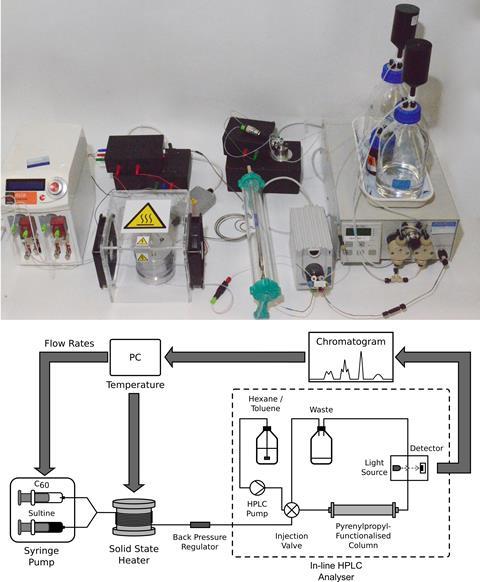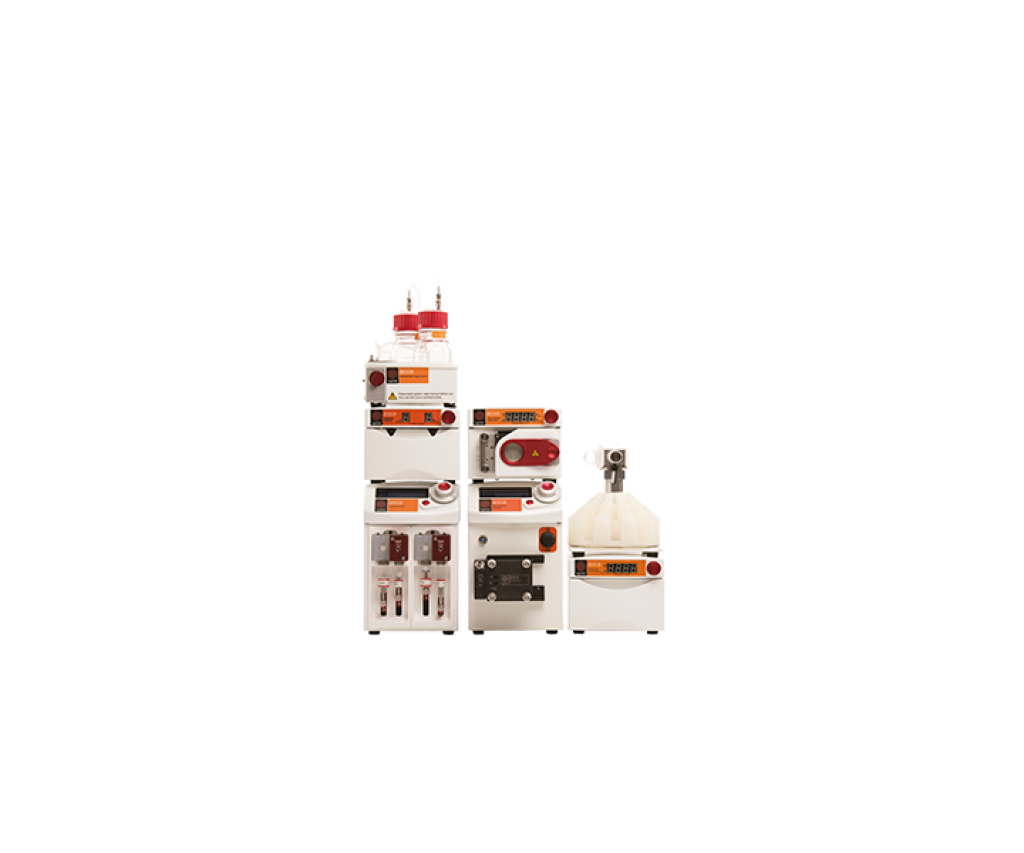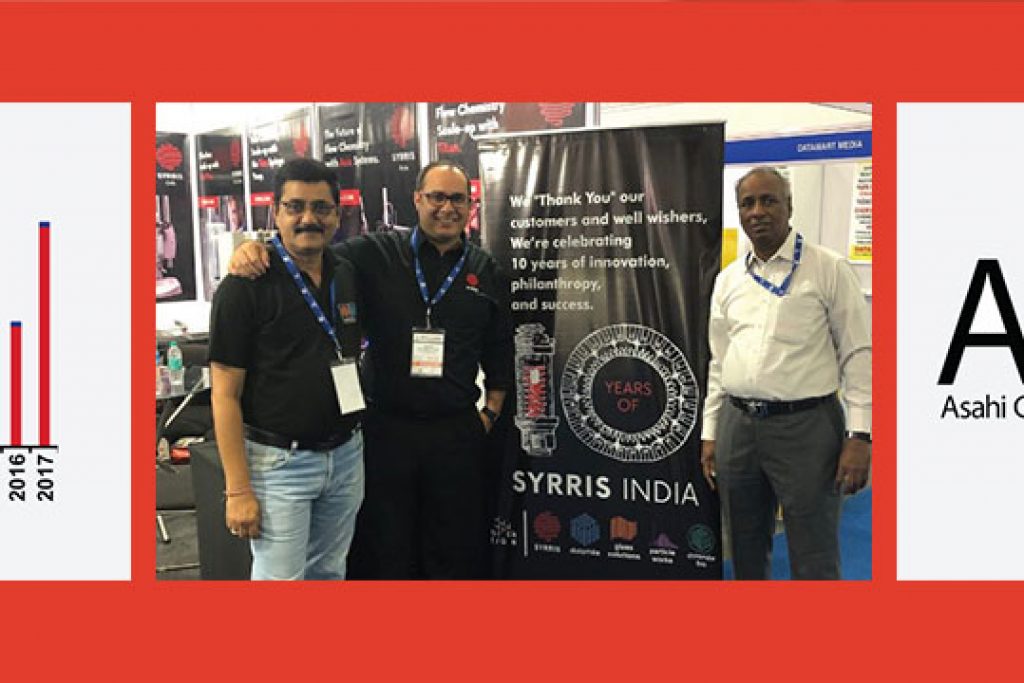UK researchers may have saved chemists hours of manually tuning their reactions, thanks to a free and user-friendly computational software tool they’ve developed.
The software, created by John de Mello and colleagues at Imperial College and the University of Southampton, translates reaction conditions into computer instructions for automated optimisation in an attempt to get rid of some of the routine manual work. Many hours are wasted with chemists manually optimizing and adjusting chemical reaction conditions; this software could automate this laborious process by enabling chemists to instruct machines to perform the search for their optimum reaction conditions.
The tool could liberate chemists to focus on conceptual problems and reaction design by enabling computers to use analytical feedback to handle experiments.

Source: John C de Mello. Above: reactor setup using a Syrris Asia Syringe Pump. Bottom: Experimental set-up for manual and automated synthesis of o-xylenyl C60 adducts
A lack of options for chemists… until now
There has been a lack of options available for chemists who want to render their optimum reaction conditions as code. Controlling more than one property makes for a complicated problem; one that generally has required bespoke mathematical functions to be written, and a thorough understanding of how the various parameters affect each other. The software created by John de Mello and colleagues generates these mathematical functions as code from defining the target parameter for optimization and minimum and maximum reaction condition boundaries.
Self-optimizing reactor systems
John de Mello’s team demonstrated the software in a model optimisation problem. The sequential Diels–Alder cycloaddition of aromatic dienes to C60 has properties important for light harvesting and electronics; however, further addition hampers these properties. Their software, using feedback from in-line chromatography, enabled a reactor setup to autonomously adjust the reaction time, reactant ratio, and temperature, until it maximized the number of useful adducts in the product mixture without hampering it.

